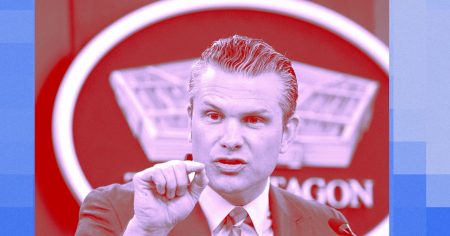Brady Slack is the founder and senior tax advisor at High Country Finance.
In my tax practice, we use a certain framework to help clients think about their taxes: simplify, reduce, produce (SRP). This isn’t some secret trick for saving money (though when clients apply it correctly, they will by definition complete a better tax return), or for getting around the work of good financial recordkeeping. Rather, we find this framework helps our clients think about their business’s overall profitability and sustainability, beyond just completing their tax returns.
The SRP Framework, Explained
How we interpret this framework is entirely dependent on what kind of client we’re talking to, but it works for all types of clients. If I’m talking to someone who’s making $100,000 or less, this might just mean educating them on how they are being taxed. Whether the client is running a small business or is a W-2 employee, it’s important for that individual to know exactly what taxes they will be paying—that’s the “simplify” portion. Then, they need to know what immediate steps they can take to potentially eliminate some of their tax liabilities, such as making contributions to a 401(k). That’s the “reduce” portion. Finally, the “produce” portion has to do with making improvements to their personal finances: setting up a budget, creating an emergency fund, making shrewd investments or acquiring valuable assets (property, businesses), planning ahead for major purchases they’d like to make and of course saving for retirement.
When we’re talking to people with businesses earning $20-30 million a year and with a take-home of $2 to $5 million, the simplification might involve taking a closer look at the accounting process within their business, or even their personal wealth. Are they optimizing their accounting processes? Is everything well organized to take advantage of the most favorable tax situation possible? The reduction might then involve cutting unnecessary business or personal expenses, looking for tax deductions their business may be entitled to (but which they may not be taking), or reducing the amount of channel flow with their money. As far as production, we might then talk about investing in human capital, marketing, advertising or software that will increase their business’s profitability. We might also talk about taking some of the cash flow from these businesses or assets and reinvesting it into other businesses or assets.
Yawning Gaps In Understanding
What’s helpful about the SRP framework is that it’s not only universally applicable but cyclical. At any stage of a client’s financial journey, when a change of some sort has been made, it’s important to go back and gut-check the basics: What are we doing? How can we make it cost less? How can we make it more profitable? These are incredibly basic questions, but we find SRP helpful because the vast majority of clients have trouble articulating these ideas for themselves, let alone how to go about executing them.
Why is this? A lot of it has to do with most people’s poor understanding of finances. Many of us were told growing up that the secret to making money is simply working hard. Or, we were told that developing a certain skill and showing up on time to work will somehow impress our supervisors, who will then notice us and think of us for higher-level (and higher-paying) roles.
There’s some truth to all of that—but it’s a woefully incomplete answer. No one tells us, “Hey, figure out what your living expenses are, and then figure out what supplemental income you have. Then take that supplemental income and invest it into real estate.” They never taught us how to utilize interest, or credit, or any of the truly impactful things people can do to build businesses and grow their personal wealth.
The problem isn’t just that people don’t understand taxes (or find them unpleasant to talk about). It’s that most of us have very poor financial literacy, which ultimately costs us a lot of money—both in paying more than we should in taxes, and in opportunity costs when money could have been better invested. This isn’t anyone’s fault, but when no one teaches this information or emphasizes the importance of learning it, the result is that most people are poor stewards of their own money.
The Imperative To Seek Good Counsel
There’s a plethora of financial information available online, on Twitter, YouTube, and Instagram. It’s incredibly easy to access, and in all honesty, a lot of it is fairly decent content. The problem that we see in our practice is that clients see this content but they don’t know whether or not it is situationally relevant to them. Because they have limited financial literacy, they are unable to discern what is actually meaningful for them, and what is completely irrelevant.
As a result, we tell our clients not to use social media as a starting point for financial education. Instead, we recommend, connecting with an accredited member of their team, like their CPA, an enrolled agent, a tax attorney, or a financial advisor. Doing so can be invaluable in helping them understand the basics and formulate a plan that will be beneficial for their given situation.
The reason our SRP framework is so helpful to clients—no matter how big or small their portfolio—is that it begins to address the gaps in education that so many of us have around money. It does this by starting at the simplest point: understanding what’s going on. Having clarity about your finances and tax implications is the first step towards savvy financial stewardship and a profitable, thriving future.
The information provided here is not investment, tax, or financial advice. You should consult with a licensed professional for advice concerning your specific situation.
Forbes Business Council is the foremost growth and networking organization for business owners and leaders. Do I qualify?
Read the full article here










